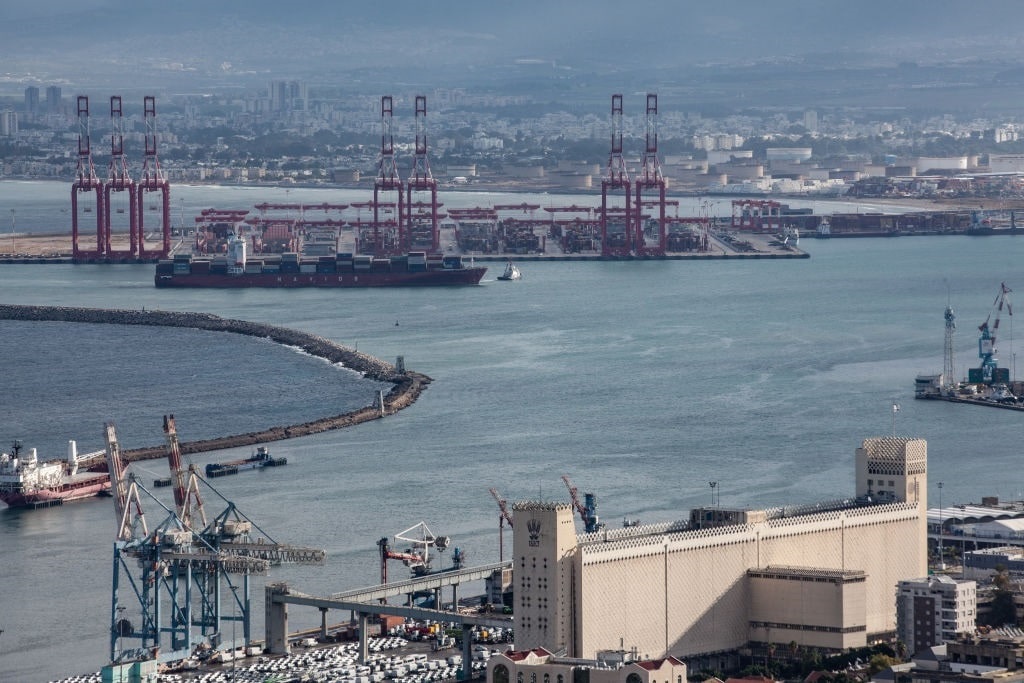“The Mouse That Roared” is at it again. This time, leaders in Iran are threatening to close the Mediterranean Sea. And why shouldn’t the mullahs in Tehran huff and puff and promise to do ridiculous things? They’ve gotten away with arming the Houthi terrorists in Yemen, who have used those weapons to attack commercial shipping in the Red Sea. Recently an Iranian naval ship provided the Houthis targeting information to attack merchant vessels attempting to transit the Bab al-Mandab Strait.
Shutting Down Maritime Traffic
Much of the commercial traffic transiting the Suez Canal, the Red Sea, and Bab al-Mandab has stopped, since many companies have chosen alternative routes. And Iran’s most recent ominous threat is to shut down the Mediterranean Sea to traffic sailing through the Gibraltar Strait. As the New York Post reported:
“An Iranian leader threatened on Saturday [Dec. 23] to close off the Mediterranean Sea in retaliation for the ongoing war in the Gaza Strip, local media outlets said. Israel and the West ‘shall soon await the closure of the Mediterranean Sea, [the Strait of] Gibraltar and other waterways,’ Brigadier General Mohammad Reza Naqdi of the Iranian Revolutionary Guards warned.”
 Exactly how the Islamic Revolutionary Guard Corps and the Islamic Republic of Iran Navy would do that is a good question. Yet what can be said with some certainty is that Iran has no reluctance to support attacks on non-combatants to prove its points. According to Reuters, “The Iranian navy has taken delivery of cruise missiles with a range of 1,000 km (621 miles) as well as reconnaissance helicopters, state media reported on Sunday [Dec. 24], as the US accused Iran of a drone attack on a chemical tanker in the Indian Ocean.”
Exactly how the Islamic Revolutionary Guard Corps and the Islamic Republic of Iran Navy would do that is a good question. Yet what can be said with some certainty is that Iran has no reluctance to support attacks on non-combatants to prove its points. According to Reuters, “The Iranian navy has taken delivery of cruise missiles with a range of 1,000 km (621 miles) as well as reconnaissance helicopters, state media reported on Sunday [Dec. 24], as the US accused Iran of a drone attack on a chemical tanker in the Indian Ocean.”
Through its Yemen-based Houthi-terrorist proxies, Iran has stepped up its attacks on maritime shipping in the Red Sea despite the Biden administration’s international marine force patrolling the area. To deter such strikes on commercial shipping, “The US Department of Defense announced the formation of an international force to stop Iran-backed Yemeni Houthis from launching drones, cruise missiles, and rockets at merchant ships in the Red Sea,” Liberty Nation reported.
Iran Not Impressed With Show of US Force
Neither Iran nor its proxy, the Houthi rebels, take the Biden administration seriously. The failure of Biden’s defense team to go after the real culprit, Iran, gives Tehran license to do what it wants in the region. New US intelligence sources reveal that Iranians are actively helping the Houthis attack merchant shipping in the region by supplying targeting information.
The rest of Iran’s proxies haven’t been discouraged from attacking US outposts and bases, either. On Christmas Day, Iranian-sponsored militias carried out a drone attack on Erbil Air Base, Iraq, during which three American service members were wounded, one critically. That promoted a rare but immediate response: “Today [Dec. 25], at President Biden’s direction, US military forces conducted necessary and proportionate strikes on three facilities used by Kataib Hezbollah and affiliated groups in Iraq,” a written statement from Secretary of Defense Lloyd J. Austin III, declared. The word “proportionate” may be a clue as to why these Iranian-inspired attacks continue unabated. What may be required are disproportionate responses that discourage Iran from further sponsorship of its war-by-proxies.
Austin went on to state the US airstrikes on the Iranian-backed militias were “intended to disrupt and degrade capabilities of the Iran-aligned militia groups directly responsible,” which so far has not done the trick. It’s time to hold Iran directly accountable. The White House dithers that it does not want to escalate the Israel-Hamas war to a larger regional conflict, while repeating the tiresome promise that the Biden team will always defend American forces. The way to accomplish both is for the United States to go on the offensive and obliterate the threats.
The views expressed are those of the author and not of any other affiliation.




